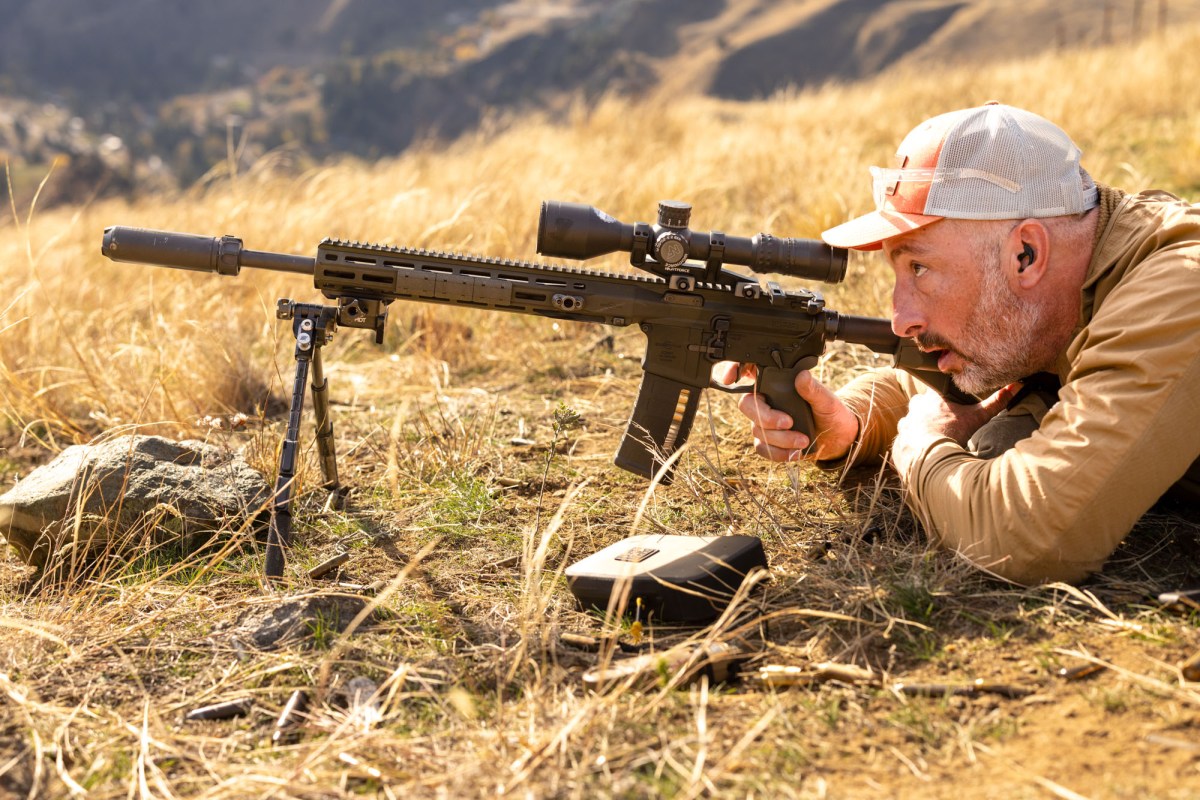10 Rare Life-Skills That Will Make You Rich Post-SHTF
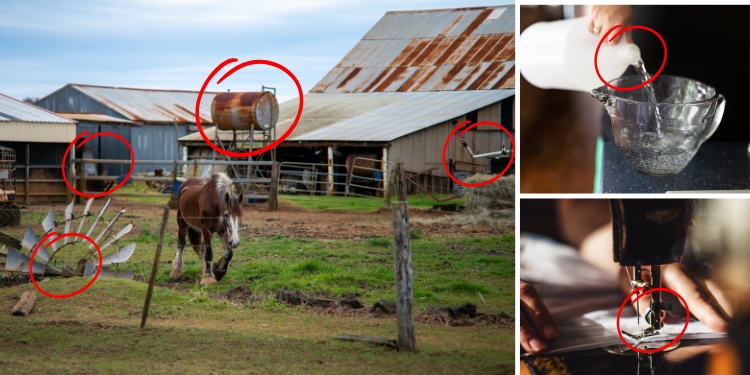
If things ever truly go sideways—economic collapse, grid failure, widespread unrest—cash won’t be king. Life-skills will be. In a post-SHTF world, the ability to do something useful will be worth more than gold, ammo, or even food. Why? Because the people who can fix, build, barter, or keep the lights on will control the new economy.
Forget stock portfolios and fancy resumes. The future belongs to doers, fixers, and builders. These are the folks who won’t just survive—they’ll thrive.
Here are 10 rare life-skills that will make you rich (and indispensable) when it all hits the fan.
Plumbing Repairs and Water Systems
Clean, accessible water is the foundation of survival. Without it, everything collapses. If you know how to build gravity-fed systems, fix burst pipes, install rain catchment barrels, repair hand pumps, and keep septic tanks flowing, your knowledge will be in demand everywhere.
You won’t just be trading your skill for goods—you’ll be securing a role in every self-sustaining community. Add the ability to design greywater recycling or simple bio-sand filters, and you’ll be invaluable.
Bonus Skills:
- Designing off-grid water filtration setups
- Troubleshooting well pumps and cisterns
- Maintaining composting toilets
How to Get Started: Learn how to fix a leaking faucet, install a rain barrel, and identify pipe fittings at your local hardware store. Practice with PVC and copper pipe repair kits.
You could also specialize in setting up alternative methods of obtaining water.
Not only would this make you super-skilled post-SHTF, but it would also give you the ability to assemble your own system that ensures water independence from the grid.
The good news is that the U.S. Army’s plans have now become available—these are the same blueprints used to build systems that supply water on the driest and harshest battlefronts.
The Water Freedom System and this backpack-sized water generator offer excellent solutions.
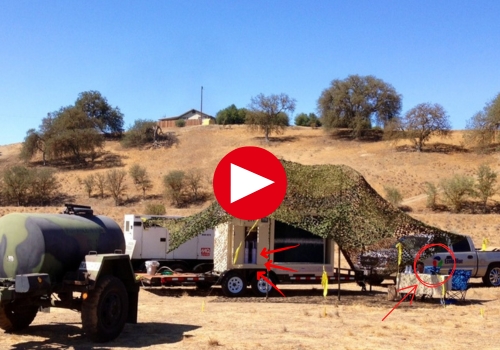 Basically, you get the plan, and you only need a few super-basic materials to put together a system that generates water out of thin air.
Basically, you get the plan, and you only need a few super-basic materials to put together a system that generates water out of thin air.
I’ve already built one of these systems at home myself, and I strongly recommend you do the same (you can find the schematics here).
You can keep these plans as your ace up your sleeve in times of crisis.
Summary: Plumbers will keep off-grid communities alive with safe water and sanitation.
Electrical Repairs
When the grid fails, most folks will sit in the dark. But those who can rewire homes, fix radios, salvage batteries, and get basic electrical systems running will be treated like magicians.
Even something as simple as repairing an LED lantern or restoring power to a small fan can mean a world of difference in a crisis. With the right knowledge, you can even help establish local microgrids powered by solar or hand-crank energy.
Bonus Skills:
- Rewinding motors or transformers
- Fixing inverters and charge controllers
- Setting up low-voltage lighting systems
How to Get Started: Take apart an old flashlight or radio and rebuild it. Watch tutorials on how to wire a basic 12V circuit or install a fuse block.
Summary: Electricians can restore light, communication, and power where others see failure.
Assembling Off-Grid Power Systems
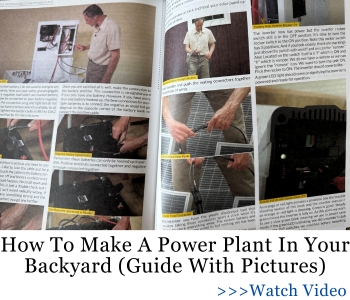 Anyone can buy a solar panel kit today—but only a few can wire up a battery bank, inverter, and charge controller without instructions.
Anyone can buy a solar panel kit today—but only a few can wire up a battery bank, inverter, and charge controller without instructions.
If you can build off-grid power setups using salvaged parts, you’ll be among the elite post-collapse class.
Think beyond basic lighting.
The person who can power a well pump, run a freezer, or support a medical clinic using solar or wind power won’t just be welcomed—they’ll be protected.
Bonus Skills:
- Calculating energy loads for homesteads
- Building DIY wind turbines or pedal-powered generators
- Installing and maintaining deep-cycle battery banks
How to Get Started: There’s now a step-by-step plan that shows you exactly how to build an off-grid power system yourself.
It’s designed to be cheap, modular, and easy—something you can assemble over a weekend using basic materials. The guide includes clear instructions, photos, and diagrams so that even a beginner can follow along without guesswork.
Summary: Off-grid power builders are the engineers of post-collapse infrastructure.
Maintaining and Cleaning Solar Panels
Even the best solar system will fail if the panels are dirty, corroded, or misaligned. If you understand how to clean and maintain panels, troubleshoot power loss, and replace damaged parts, you’ll never be out of work.
The ability to get the most efficiency out of each panel—especially when parts become scarce—will turn you into a solar whisperer. Expect people to trade food, ammo, or shelter for your services.
Bonus Skills:
- Building solar cookers or water heaters from scrap
- Rewiring panels to bypass dead cells
- Teaching others basic maintenance to extend system life
How to Get Started: Purchase a small solar panel and meter. Measure performance, then learn how dirt and angle affect output.
Summary: Solar techs keep power flowing and batteries charged when others are stuck in the dark.
Welding and Metalwork
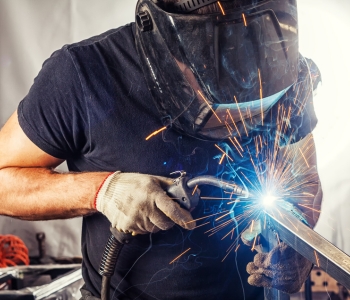 Post-collapse, there won’t be factories churning out replacement parts. That’s where welders come in. Whether it’s reinforcing gates, fabricating hinges, patching a cracked trailer frame, or making wood stoves from barrels—you’ll be worth your weight in steel.
Post-collapse, there won’t be factories churning out replacement parts. That’s where welders come in. Whether it’s reinforcing gates, fabricating hinges, patching a cracked trailer frame, or making wood stoves from barrels—you’ll be worth your weight in steel.
Welding is already a rare skill in most communities. After SHTF, it becomes one of the most valuable trades on the map.
Bonus Skills:
- Blacksmithing tools and hardware from junk
- Building rocket stoves and efficient heaters
- Repairing bicycles, carts, and animal-drawn equipment
How to Get Started: Find a local welding class or invest in a basic stick welder and practice on scrap metal. Safety gear is essential.
Summary: Metalworkers become the toolmakers and builders of post-collapse society.
Butchering and Meat Preservation
 Knowing how to humanely and efficiently butcher livestock or wild game—and then preserve it—is a skill set that will always be needed. In a grid-down world, refrigeration won’t always be available, so those who can smoke, salt, can, or cure meat will become indispensable.
Knowing how to humanely and efficiently butcher livestock or wild game—and then preserve it—is a skill set that will always be needed. In a grid-down world, refrigeration won’t always be available, so those who can smoke, salt, can, or cure meat will become indispensable.
You’ll also be able to trade preserved food products like jerky, sausage, and fat for other high-value goods or services.
Bonus Skills:
- Rendering tallow and lard for cooking or soap-making
- Creating shelf-stable foods like pemmican and bone broth
- Skinning and hide tanning for gear and trade
How to Get Started: Begin with small animals like chickens or rabbits. Learn knife skills and safe meat handling. Invest in a good butchering guidebook and a few quality blades. You can learn a wealth of useful information about food preservation and meal planning from A Navy SEAL’s Bug-In Guide, now available at a promotional price.
Summary: Butchers feed families, store calories, and preserve nutrition when it matters most.
Herbal Medicine and Natural Remedies
Once pharmacies are empty and hospitals overwhelmed, local medicine becomes everything. Herbalists who can treat wounds, ease pain, fight infection, and maintain health with plants will serve as the community’s doctor, pharmacist, and wellness center.
This knowledge is renewable and grows with the land around you—making it even more valuable.
Bonus Skills:
- Making tinctures, salves, and poultices
- Identifying and foraging regional medicinal plants
- Creating portable herbal first aid kits
How to Get Started: Grow or gather 5 beginner-friendly herbs (like calendula, yarrow, and comfrey – you can do it the easy way using this kit). Learn to make an infusion or salve. Keep a foraging journal.
Summary: Herbalists restore health and comfort when conventional medicine is out of reach. If you want to learn from someone who truly masters this field, I recommend the resources provided by Dr. Nicole Apelian.
Once considered to have no chance of beating MS by conventional medicine, she developed her own survival system and has managed to keep her illness under control. What’s more, she created 45 natural protocols for common conditions such as:
Get The Holistic Guide to Wellness: Herbal Protocols for Common Ailments and you’ll learn how to develop supportive treatments for problems people are bound to face post-SHTF.
Negotiation and Bartering Expertise
 In a post-collapse economy, bartering will replace cash. People who understand how to value goods, close deals, and maintain relationships will thrive.
In a post-collapse economy, bartering will replace cash. People who understand how to value goods, close deals, and maintain relationships will thrive.
Great negotiators don’t just score trades—they help build peaceful communities and thriving markets. A good barter broker can make alliances and diffuse tension when it matters most.
Bonus Skills:
- Running pop-up barter markets or traveling trade posts
- Creating fair-value systems and managing disputes
- Recognizing deception and psychological tactics
How to Get Started: Attend a flea market or barter fair and observe transactions. Practice negotiating prices at garage sales. Study basic negotiation techniques. A shortcut would be to look at what the Amish do.
After all, they are experts in bartering and in managing resources efficiently. Here you can find all their secrets, which you can draw inspiration from for the hard times ahead.
Summary: Barter pros are the dealmakers and diplomats of the new economy.
Sewing and Clothing Repair
Clothing wears out faster than you’d think—and in a world without Walmart, someone who can mend or create clothing from scratch will always have work. Tailors who can sew, patch, and adapt gear to the seasons will provide comfort, protection, and dignity.
From baby clothes to winter coats to leather satchels, a skilled sewer helps entire families weather hard times.
Bonus Skills:
- Quilting, knitting, and hand-stitching heavy-duty items
- Repurposing old materials into new gear
- Making custom-fit gear for survival needs
How to Start: Learn how to sew a button, patch denim, and use a treadle or hand-crank sewing machine. Stockpile needles, thread, and fabric scraps.
Summary: Tailors clothe and protect communities with skill, not factories.
Homestead Systems and Permaculture Design
The ability to build a self-sustaining system from soil, sun, and sweat is the pinnacle of preparedness. Permaculture experts understand how to turn backyards into food forests, how to use animal waste as fuel, and how to recycle water for crops.
They don’t just survive—they create abundance.
Bonus Skills:
- Designing closed-loop waste, food, and energy systems
- Building raised beds, swales, and keyhole gardens
- Managing small livestock for eggs, meat, and compost
How to Start: Grow something—anything. Study permaculture basics and start a compost pile. Walk your land and observe water flow and sun patterns. Learn from homesteaders with experience.
Ron and Johanna Melchiore have been doing this for over 40 years, and they decided to share their experience in The Self-Sufficient Backyard—a book well worth reading and keeping close at hand for crisis scenarios.
Summary: Homestead designers build systems where survival becomes sustainable.
Final Thoughts
In a true survival scenario, it won’t matter what your job title used to be. The people who will eat well, stay warm, and live comfortably will be the ones who can fix what’s broken, keep systems running, and trade their know-how for everything else.
You won’t just survive—you’ll become the foundation of a rebuilt world.
And the best part? You can start learning today. Online tutorials, local classes, and a few hours a week of hands-on practice will put you far ahead of the pack.
Start practicing. Start building. Because when the time comes, those who can do will rise to the top.
To put into practice all the skills that could bring you peace of mind post-SHTF, you’ll also need some tools and accessories. Keep them safe, alongside your stock of food, water, and medicine, in The Easy Cellar. Easy to build, this underground bunker offers military-grade EMP protection and can shelter you in the event of a nuclear attack!
You may also like:
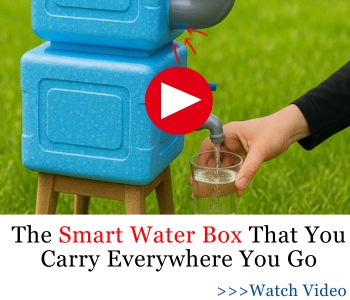
Lost Life Skills
What’s Coming Is A Global Reset (Video)
7 Life Skills I Wish I Knew Sooner
Overrated “Survival Skills” You Don’t Actually Need
30 Primitive Skills Every Prepper Should Know
Read the full article here








